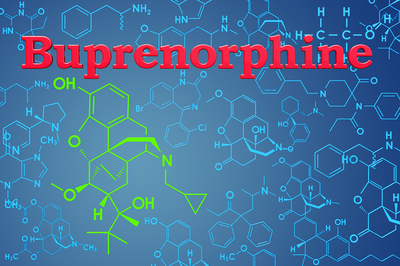
Does extended-release buprenorphine offer better outcomes for OUD?
Knowledge regarding how best to treat patients struggling with opioid addiction is constantly advancing. Now comes news that the long-acting buprenorphine formulation BUP-XR, a monthly extended release injection, may be a valuable treatment for opioid use disorders (OUD). Here’s a closer look at the research, as published late last month in The Lancet.
About the Research
“RBP-6000, referred to as BUP-XR (extended-release buprenorphine), is a subcutaneously injected, monthly buprenorphine treatment for opioid use disorder. BUP-XR provides sustained buprenorphine plasma concentrations to block drug-liking of abused opioids over the entire monthly dosing period, while controlling withdrawal and craving symptoms. Administration of BUP-XR in a health-care setting also mitigates abuse, misuse, diversion, and unintentional exposure. We aimed to investigate the efficacy of different BUP-XR dosing regimens in participants with opioid use disorder,” writes the research team of the study.
Their findings, after conducting a randomized, double-blind, placebo-controlled trial at 36 treatment centers across the US? Participants in the BUP-XR groups had significantly higher abstinence rates than their peers in the placebo group. Not only that, but treatment with the drug was also well tolerated with minimal side effects.
The researchers’ ultimate conclusion? “The availability of this monthly formulation, delivered by health-care providers, represents an advance in treatment for opioid use disorder that enhances the benefits of buprenorphine by delivering sustained, optimal exposure, while reducing risks of current buprenorphine products.”
What It Means
While daily dose buprenorphine, which was approved by the FDA in 2002, is also effective in treating OUD, it’s not without problems, according to the National Institute on Drug Abuse (NIDA). For starters, daily doses require patients to commit to taking the medication every day. Additionally, cravings may occur toward the end of the 24-hour cycle. BUP-XR, however, mitigates these obstacles.

Researchers confirm the potential of BUP-XR for treating OUD.
For the millions of American who suffer from OUD, along with the millions more who love them, BUP-XR represents new hope for recovery — but only when integrated into a comprehensive treatment plan. It also further validates the importance of MAT.
Advises NIDA, “Medications should be combined with behavioral counseling for a ‘whole patient’ approach, known as Medication Assisted Treatment (MAT).”
In fact, not only are medication and behavioral counseling complementary, but they’re also symbiotic: Research indicates that patients who are in treatment with medication are more likely to stay in therapy than those who receive treatment without medication.
The takeaway, according to the US Food and Drug Administration? “More must be done to facilitate treatment options and the development of therapies to address OUD as a chronic disease with long-lasting effects. This means helping more people secure MAT, which requires us to break the stigma often associated with some of the medications used to treat OUD. It also requires us to find new and more effective ways to advance the use of medical therapy for the treatment of OUD.”
St. Louis area substance abuse rehabilitation center Harris House utilizes a comprehensive approach to treatment and recovery, including MAT. To learn more about its holistic individual recovery plans, contact us today.








